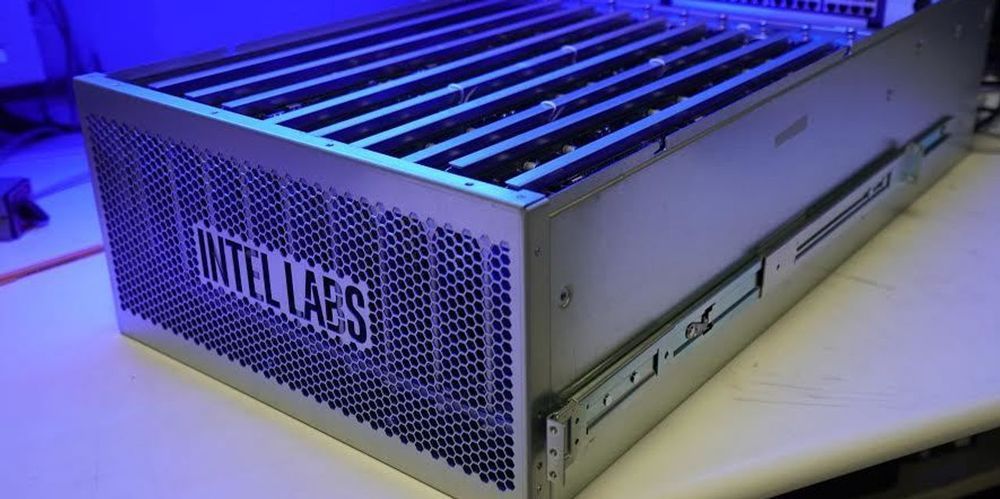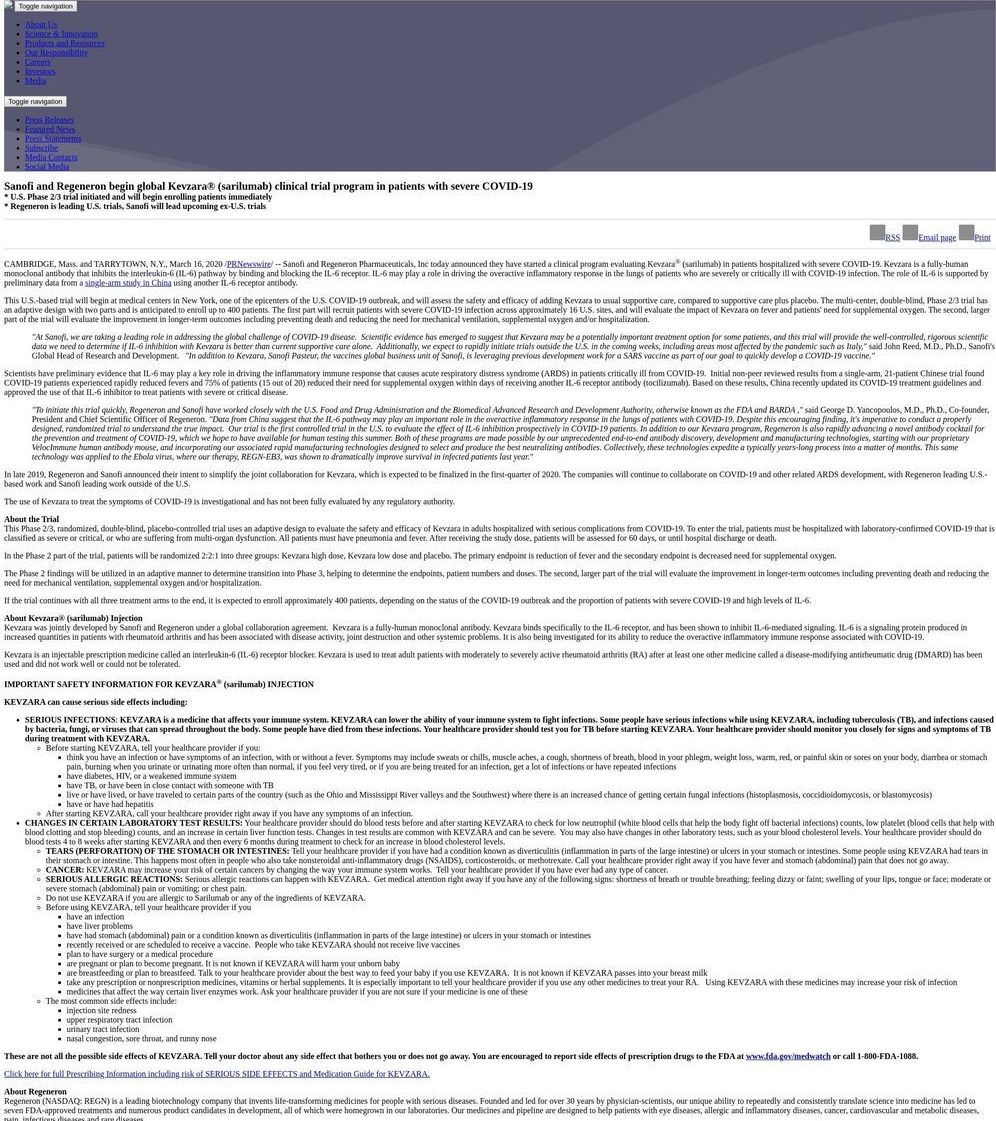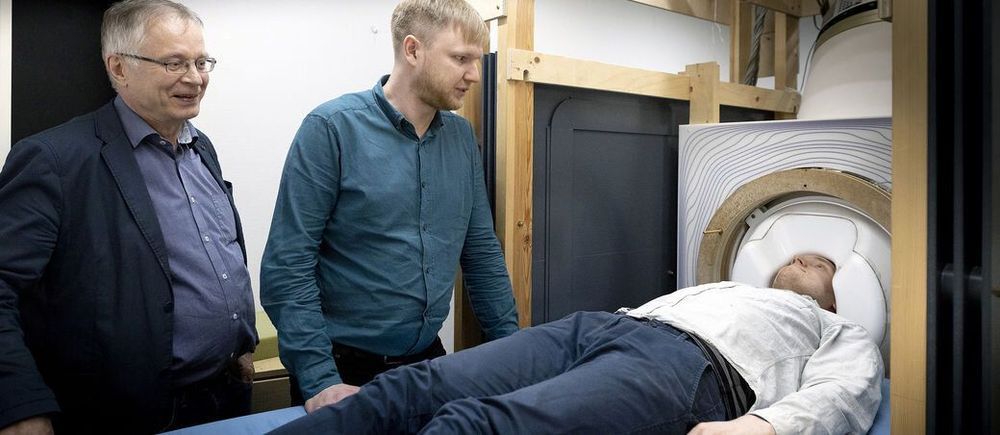CAMBRIDGE, Mass. and TARRYTOWN, N.Y., March 16, 2020 /PRNewswire/ — Sanofi and Regeneron Pharmaceuticals, Inc today announced they have started a clinical program evaluating Kevzara® (sarilumab) in patients hospitalized with severe COVID-19. Kevzara is a fully-human monoclonal antibody that inhibits the interleukin-6 (IL-6) pathway by binding and blocking the IL-6 receptor. IL-6 may play a role in driving the overactive inflammatory response in the lungs of patients who are severely or critically ill with COVID-19 infection. The role of IL-6 is supported by preliminary data from a single-arm study in China using another IL-6 receptor antibody.
This U.S.-based trial will begin at medical centers in New York, one of the epicenters of the U.S. COVID-19 outbreak, and will assess the safety and efficacy of adding Kevzara to usual supportive care, compared to supportive care plus placebo. The multi-center, double-blind, Phase 2/3 trial has an adaptive design with two parts and is anticipated to enroll up to 400 patients. The first part will recruit patients with severe COVID-19 infection across approximately 16 U.S. sites, and will evaluate the impact of Kevzara on fever and patients’ need for supplemental oxygen. The second, larger part of the trial will evaluate the improvement in longer-term outcomes including preventing death and reducing the need for mechanical ventilation, supplemental oxygen and/or hospitalization.
“At Sanofi, we are taking a leading role in addressing the global challenge of COVID-19 disease. Scientific evidence has emerged to suggest that Kevzara may be a potentially important treatment option for some patients, and this trial will provide the well-controlled, rigorous scientific data we need to determine if IL-6 inhibition with Kevzara is better than current supportive care alone. Additionally, we expect to rapidly initiate trials outside the U.S. in the coming weeks, including areas most affected by the pandemic such as Italy,” said John Reed, M.D., Ph.D., Sanofi’s Global Head of Research and Development. “In addition to Kevzara, Sanofi Pasteur, the vaccines global business unit of Sanofi, is leveraging previous development work for a SARS vaccine as part of our goal to quickly develop a COVID-19 vaccine.”








